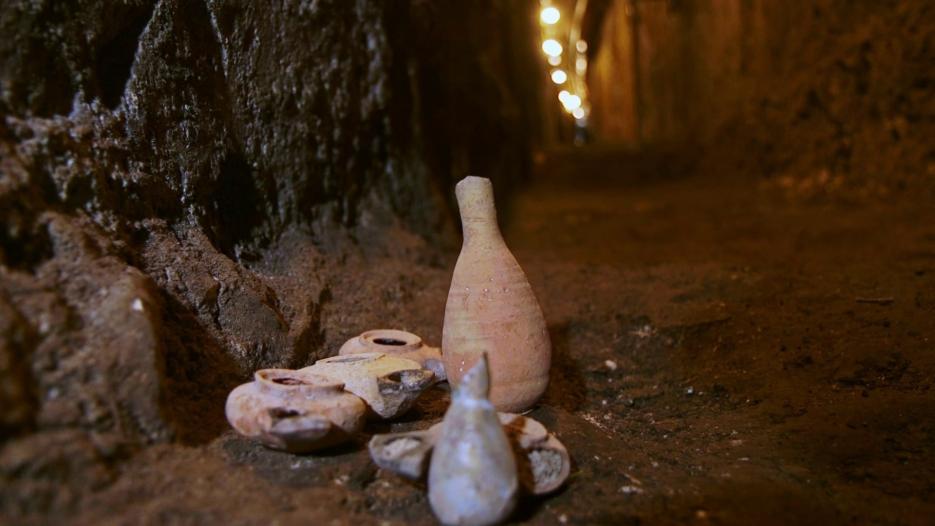New finds from the 2000-year-old drainage channel in Jerusalem tells the city’s story in the days of the Second Temple from its prosperity until its decay and destruction. The excavation, managed by the Israel Antiquities Authority with funding from the City of David, reveals Jerusalem’s changing urban pulse in the last decades before the Temple’s destruction in 70 CE.

In the framework of this excavation, the channel that was Jerusalem’s main subterranean artery is being exposed.
This channel passed under, amongst other facilities, the colorful markets of Jerusalem at the foot of the Temple Mount, and along the entire length of the City of David.
“Into the channel’s mouth were swept the detritus of the life above Jerusalem's main street; where they remained preserved between the walls just as they were at the moment of the city’s destruction,” explains Dr. Ayala Zilberstein, Excavation Director on behalf of the Israel Antiquities Authority. “Small finds tell us a big story, from Jerusalem’s heyday of prosperity and splendor when its streets bustled with life, until the city’s ebbing moments during the rebellion against the Romans, and its total abandonment following the Temple and city’s destruction.”
According to Dr. Zilberstein, “Since most of these municipal channels were maintained and cleared regularly, to find layers of silt in the main drainage channel filling it to almost half its height, indicates a gradual neglect of city maintenance. And indeed, this very neglect and abandonment that we are now witness to here corresponds to the story of the process of Jerusalem’s destruction.”
